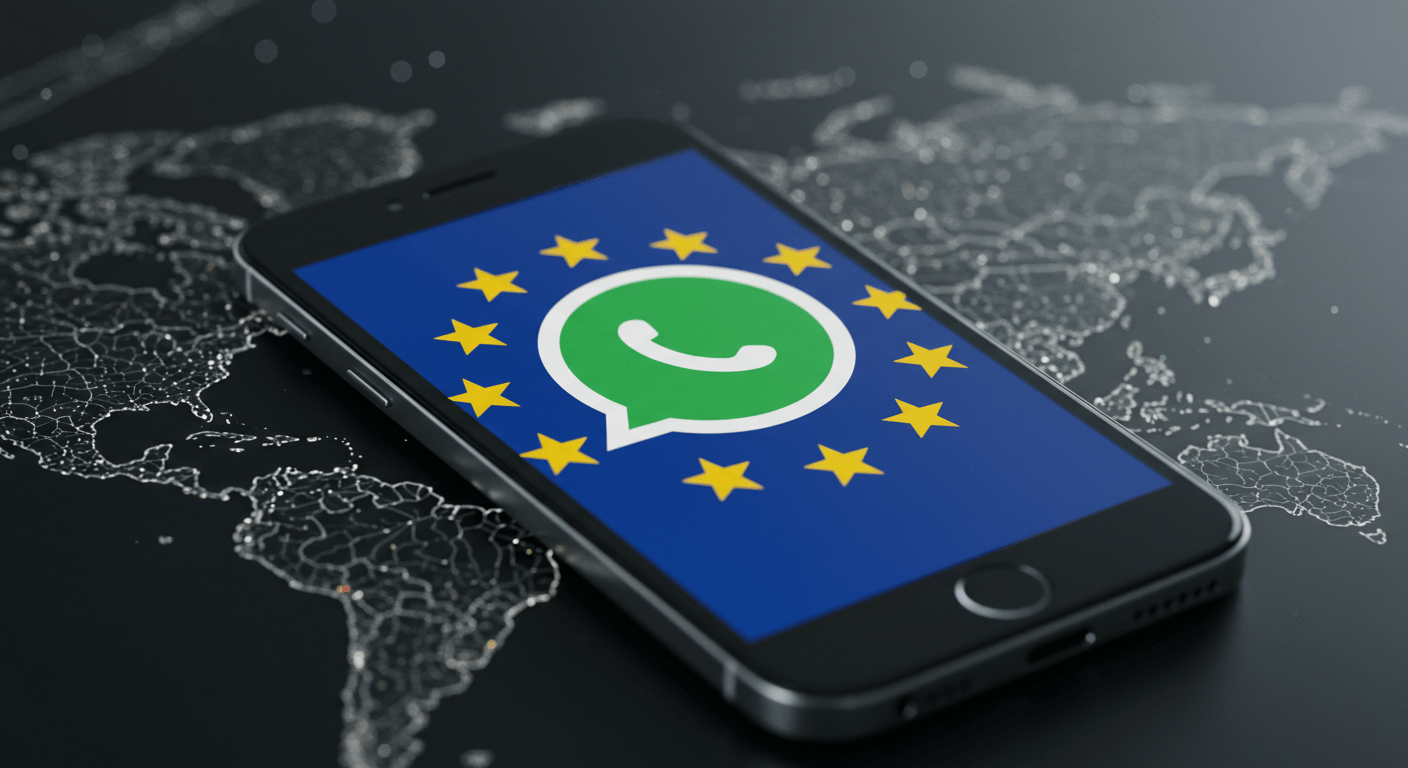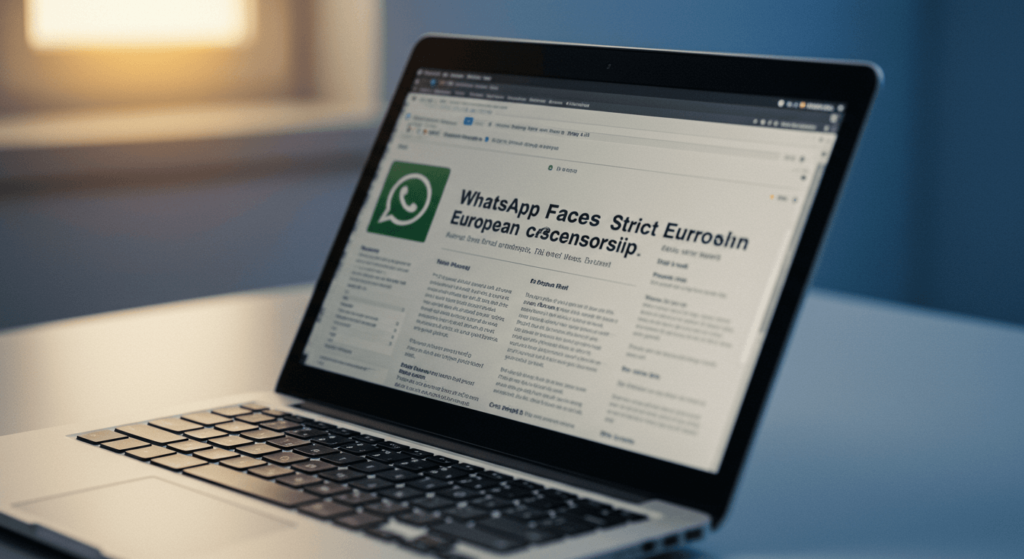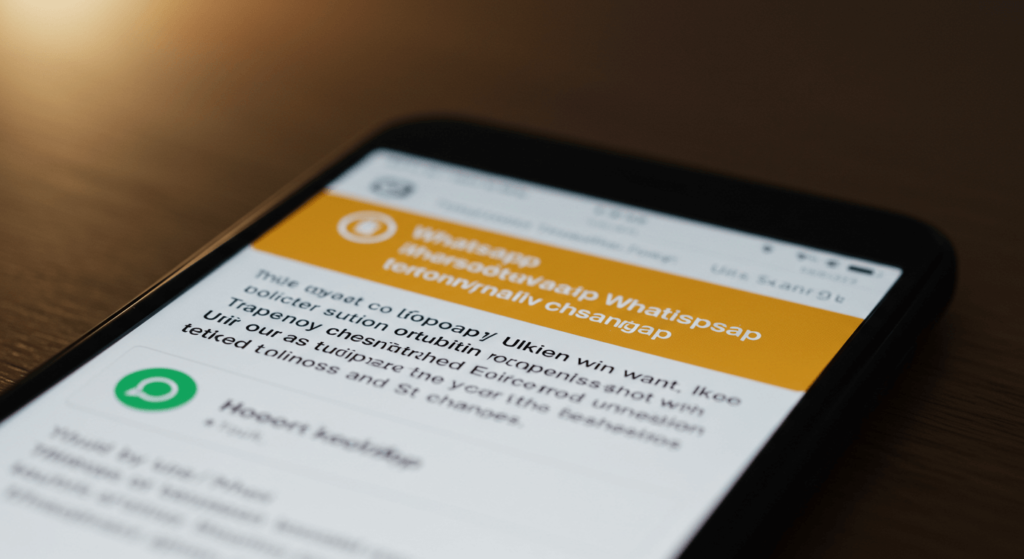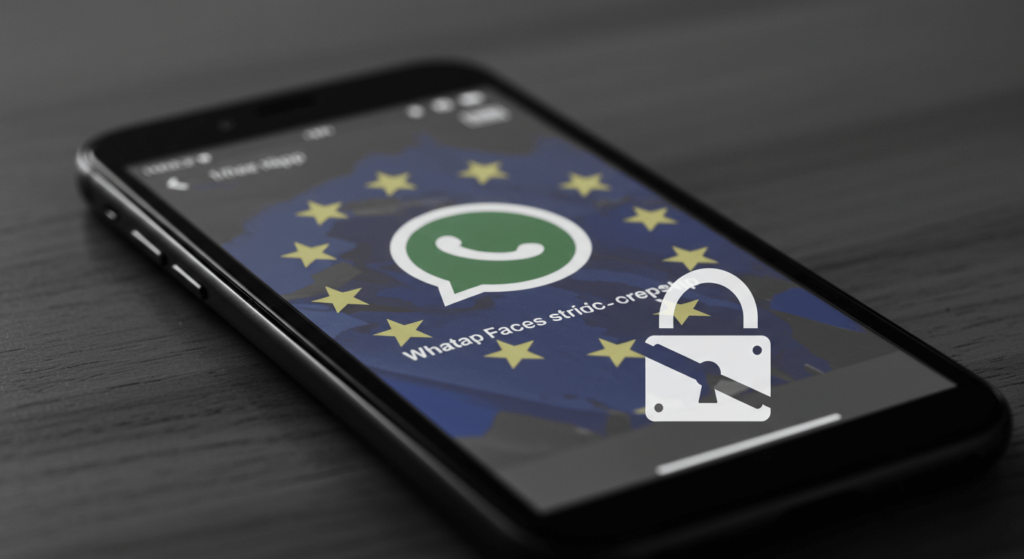Physical Address
304 North Cardinal St.
Dorchester Center, MA 02124
Physical Address
304 North Cardinal St.
Dorchester Center, MA 02124

The European Union has long been at the forefront of digital regulation, aiming to create a safer and more transparent online environment. Recently, WhatsApp—owned by Meta Platforms Inc.—has come under intense scrutiny as WhatsApp faces strict European censorship due to new European laws. These strict regulations are designed to hold major tech platforms accountable for user privacy and data security. However, they also raise concerns about digital freedom and user privacy. This article explores why WhatsApp faces strict European censorship, how this impacts users, and what the future may hold for the messaging giant.

The European Union has taken a strong stance on digital regulation with the introduction of the Digital Services Act (DSA) and the Digital Markets Act (DMA). These regulations are aimed at controlling the influence of large tech companies, ensuring fair competition, and protecting consumer privacy.
The Digital Services Act (DSA) and Digital Markets Act (DMA) are landmark regulations aimed at reshaping the digital landscape in Europe. The DSA focuses on increasing transparency and accountability in how online platforms moderate content, while the DMA targets “gatekeepers”—large digital companies that dominate the market.
The DSA requires platforms like WhatsApp to take greater responsibility for monitoring harmful content, ensuring transparency in content moderation, and providing users with clear information about data usage. Companies must also implement mechanisms for users to report illegal content.
The DMA is designed to prevent anti-competitive practices by digital giants. It forces companies like Meta to ensure interoperability between their platforms and third-party services. This could mean WhatsApp must allow integration with other messaging platforms, increasing competition but potentially compromising user privacy.
Meta faces significant challenges in adapting WhatsApp to meet these new regulatory requirements. Adjusting encryption protocols, altering data-sharing practices, and increasing content transparency could undermine the very features that attract users to WhatsApp.
The General Data Protection Regulation (GDPR) remains a cornerstone of data privacy in the EU. WhatsApp, already under fire for its data-sharing practices with Meta, now faces even stricter compliance obligations.
WhatsApp’s end-to-end encryption is a key feature that ensures user privacy. However, EU regulators are concerned that this feature can be misused for illegal activities, leading to calls for potential backdoors or increased monitoring capabilities.
WhatsApp has faced criticism over how it collects and shares user data with Meta. Under GDPR, WhatsApp is required to clearly inform users about data collection practices and obtain explicit consent before sharing any information.

The increased regulation and censorship measures could significantly impact WhatsApp users across Europe. Changes to encryption, data-sharing policies, and platform interoperability could undermine the privacy and security features that users value most.
The new regulations could force WhatsApp to limit or alter several of its key features, as WhatsApp faces strict European censorship. These changes might include restrictions on end-to-end encryption, data-sharing practices, or even certain communication tools that have been central to the app’s appeal. As the EU enforces stricter laws on digital platforms, WhatsApp will have to adapt to comply, potentially compromising its user experience and privacy policies.
One potential change could involve weakening end-to-end encryption to allow for greater governmental oversight. While this might enhance security monitoring, it could also compromise user privacy.
The European Union could impose restrictions on WhatsApp’s ability to share user data with Meta for advertising or analytical purposes, significantly affecting the company’s business model.
The proposed changes have sparked significant concern among privacy advocates and users. This is especially true as WhatsApp faces strict European censorship. Many fear that the new regulations will compromise user privacy. They may force platforms like WhatsApp to share more data with authorities. As a result, users are increasingly looking for alternatives that prioritize privacy and security. They fear that stricter regulations could undermine their control over personal information.
Organizations like Privacy International have raised alarms about the potential for government overreach and the erosion of digital privacy rights, particularly as WhatsApp faces strict European censorship. These groups warn that new regulations could force platforms like WhatsApp to compromise user privacy, allowing authorities to access private communications. As digital privacy concerns grow, organizations continue to advocate for stronger protections to prevent any infringement on user rights within the European Union.
Many users fear that these regulations could lead to surveillance or censorship, especially as WhatsApp faces strict European censorship. This concern has sparked a growing backlash across social media platforms and privacy-focused forums, where users are vocal about the potential loss of privacy. As these new regulations loom, there is increasing pressure on lawmakers to find a balance between ensuring security and protecting users’ right to private communication, especially on platforms like WhatsApp.

With WhatsApp under scrutiny, other messaging platforms like Signal and Telegram are becoming more popular, especially among privacy-conscious users.
Signal has built its reputation on privacy-first principles, adhering strictly to encryption standards that align with EU data protection laws. By prioritizing end-to-end encryption, Signal ensures that user data remains secure, offering a trusted alternative to other messaging platforms like WhatsApp. As privacy regulations continue to tighten across Europe, Signal’s commitment to data protection positions it as a leading choice for users seeking a secure messaging app in compliance with European privacy laws.
Signal offers open-source encryption protocols and does not collect user metadata, making it one of the most secure messaging apps available. As WhatsApp faces strict European censorship, users seeking greater privacy may turn to Signal, knowing it provides a level of security that complies with EU data protection standards. Unlike WhatsApp, which faces increasing scrutiny over its data-sharing practices, Signal’s commitment to privacy ensures that user communications remain fully encrypted and free from external oversight.
Due to increasing concerns over WhatsApp’s data practices, many users are shifting toward platforms like Signal that offer stronger privacy protections.
Telegram offers robust encryption features but has different data collection policies compared to Signal and WhatsApp.
Telegram collects some metadata, which could raise privacy concerns under strict EU regulations.
Unlike WhatsApp, Telegram offers optional end-to-end encryption, which may not fully satisfy the privacy demands of some European users.

As European regulations tighten, WhatsApp and its parent company, Meta, face significant challenges in complying with these increasingly strict laws. To maintain user trust, WhatsApp must carefully balance data privacy with regulatory compliance, ensuring transparency around data-sharing practices. With heightened scrutiny over user privacy, the platform’s ability to adapt to these evolving regulations will determine its future in the European market.
Meta is likely to pursue a combination of legal action and compliance strategies to navigate these regulatory hurdles.
Meta has ramped up its lobbying efforts to influence how these regulations are implemented, aiming to protect its business interests.
To comply with evolving EU regulations, WhatsApp may need to implement significant updates to its privacy policies. These updates could include greater transparency around data-sharing practices, ensuring users have more control over their personal information. With stricter European censorship laws, WhatsApp is under pressure to balance user privacy with regulatory compliance, ultimately shaping the platform’s future in Europe.
The European Union remains committed to strengthening digital privacy for its citizens, with new reforms and regulations expected in the coming years.
The European Court of Justice will continue to play a critical role in shaping digital privacy laws across the EU. As new regulations impact platforms like WhatsApp, the court will ensure that user rights are upheld and protected from overreach. With an increasing focus on data security and privacy, the European Court of Justice’s decisions will be pivotal in guiding how tech companies navigate the evolving landscape of digital censorship and data protection in Europe.
First, future regulations are expected to offer stronger protections for user data. As a result, it will become more difficult for tech companies like WhatsApp to collect and use personal information without explicit consent. Moreover, as privacy concerns grow, these regulations will impose stricter rules on data-sharing practices. Consequently, companies will be required to be more transparent with users. In the long run, these changes will reshape how digital platforms operate, with a greater focus on safeguarding user privacy and data security.
In conclusion WhatsApp’s challenges with strict European censorship reflect the growing tension between tech giants and government regulations. As the EU continues to enforce stringent privacy laws, platforms like WhatsApp must adapt while maintaining the trust and privacy of their users. The coming years will be crucial in determining how WhatsApp and other messaging apps navigate this complex legal landscape, shaping the future of digital privacy in Europe.